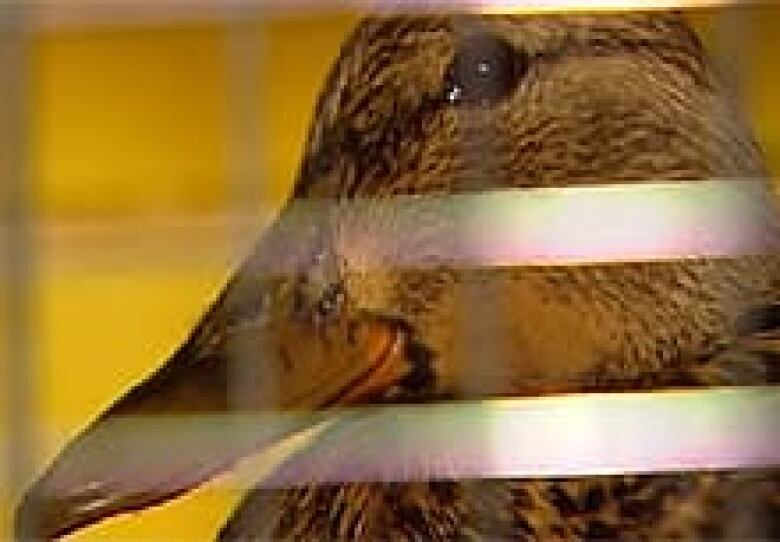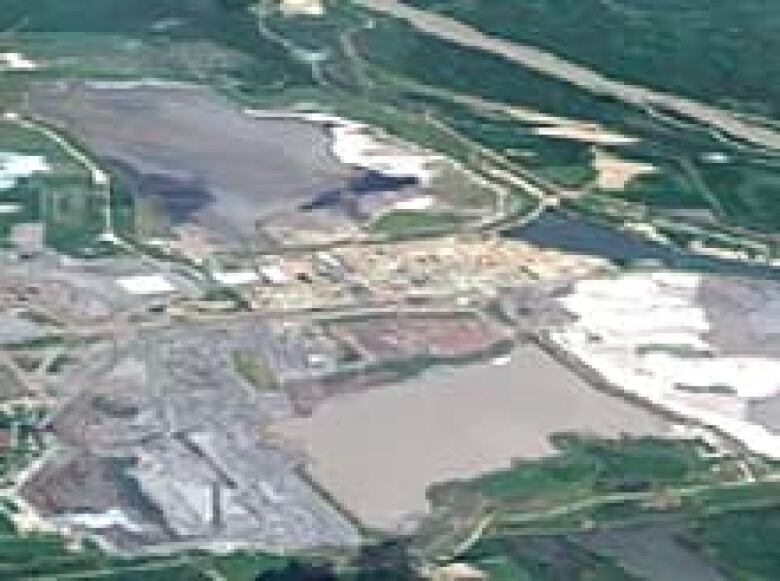Few survivors after 500 ducks take dip in Alberta oilsands waste
Workers at a wildlife rehabilitation centre outside Edmonton worked to save a handful of oil-coated ducks Wednesday while environmentalists, politicians and Syncrude officials argued about who is responsible for the latest black mark against the province's oilsands development.
About 500ducks landed Monday on a tailings pond filled with waste from Syncrude's oilsands operation at the Aurora North Site mine, north of Fort McMurray. Only a handful of birds survived the dip in the toxic water. Most of the ducks were too heavily coated with oil and waste to survive.

Three of the surviving birds are being treated at the Wildlife Rehabilitation Centre of Edmonton by volunteers. The birds arrived from Fort McMurray Tuesday at an Edmonton emergency veterinary clinic, and were sent to the rehab centre Wednesday morning.
"We need to get some food and water into them, and we need to get them warmed up,"said Kim Blomme, the shelter's founder.
She said the centre had been told to expect two more birds.
Blomme said it was too early to say if her new charges would survive.
"If they're in good body condition right now and we can keep them in good body condition, get the rest of the contaminants washed off their feathers, get them waterproofed again, then their chances are good."

At the tailings pond Wednesday, Syncrude crews were looking for live birds, but officials said hopes of finding more were slim.
"A completely oiled bird would likely sink immediately. We've recovered the ones that we could," said Steve Gaudet, a Syncrude staff member managing the recovery effort.
The company has said it normally has bird deterrents deployed on the three-kilometre-wide lake of waste from early spring until late fall. But the noisemakers and scarecrows were not in place because of the harsh winter weather last week, officials said.
Ruth Klienbub, a Fort McMurray bird watcher, told CBC News she has been seeing migrating birds all month.
"Everyone knows when migration happens. This has been documented for a century. They should have known better," she said.

At the Alberta legislature Wednesday, Premier Ed Stelmach promised a full investigation into the incident.
"I can assure all Albertans that we're going to pursue this matter very diligently," he said.
Stelmach, when asked how the incident will be viewed in the United States, expressed confidence in the government's actions.
"This gives us an opportunity to tell not only our American trading partners but all the world that we mean business when it comes to the rules and regulations we have in place with respect to protection of the environment," the premier said.
Alberta has been the target of international attacks by environmental groups claiming oilsands development is too destructive to the environment.
Environmentalists not surprised
"I'm surprised that it took this long to happen," said Glen Semenchuk, executive director of the Federation of Alberta Naturalists.
Late Tuesday, Semenchuk said his group has been concerned for years that the ponds were along a major flyway for waterfowl and could attract birds.
"We were assured by the government that as part of their licensing they would ensure a deterrent program would be in place and now we are seeing that deterrent program does have some flaws in it," he said.
There was also criticism from Greenpeace Canada, which has been lobbying for a moratorium on oilsands expansion.
"Its a very devastating tragedy," said Greenpeace spokesman Mike Hudema Wednesday.
He said one of the most alarming factors is Syncrude failed to report the incident. Government officials confirmed they only learned aboutthe incidentfrom an anonymous tip.
With files from Erik Denison and Pierre-Andre Cloutier












_(720p).jpg)


 OFFICIAL HD MUSIC VIDEO.jpg)
.jpg)



























































































